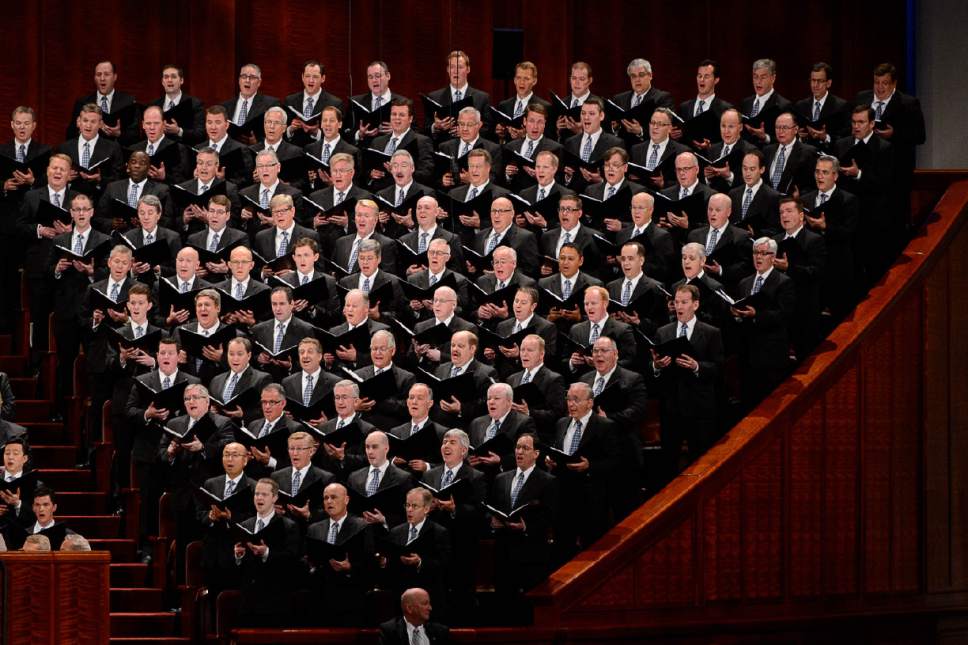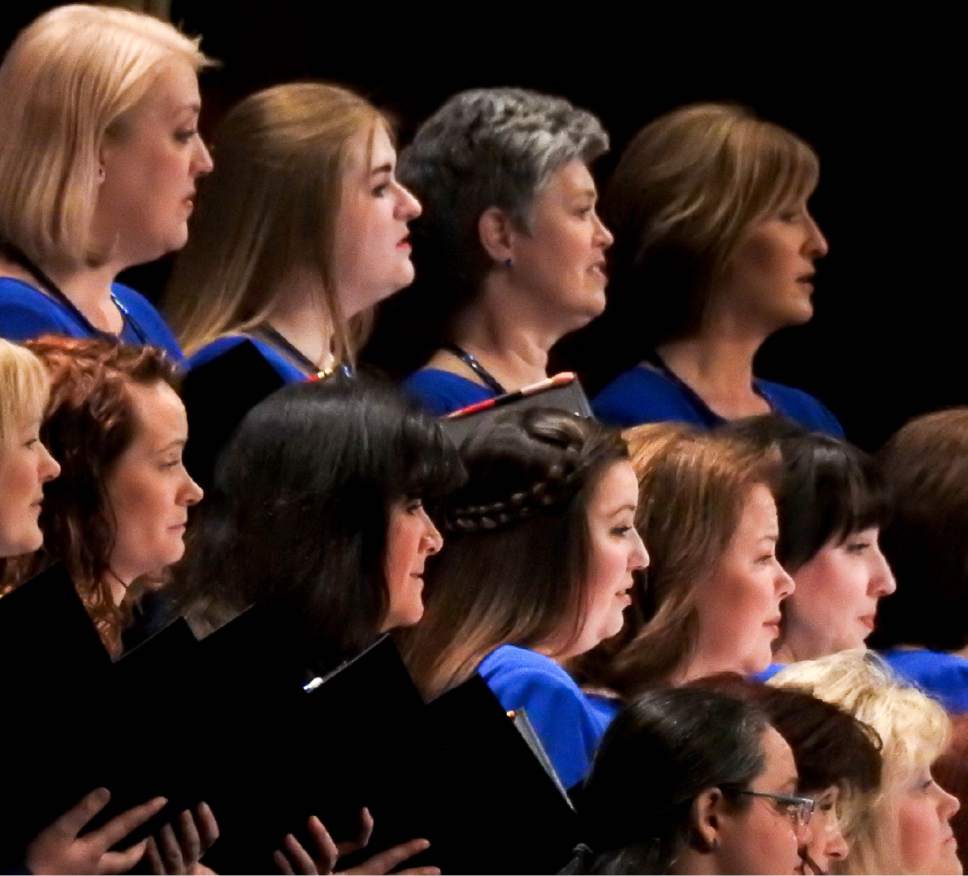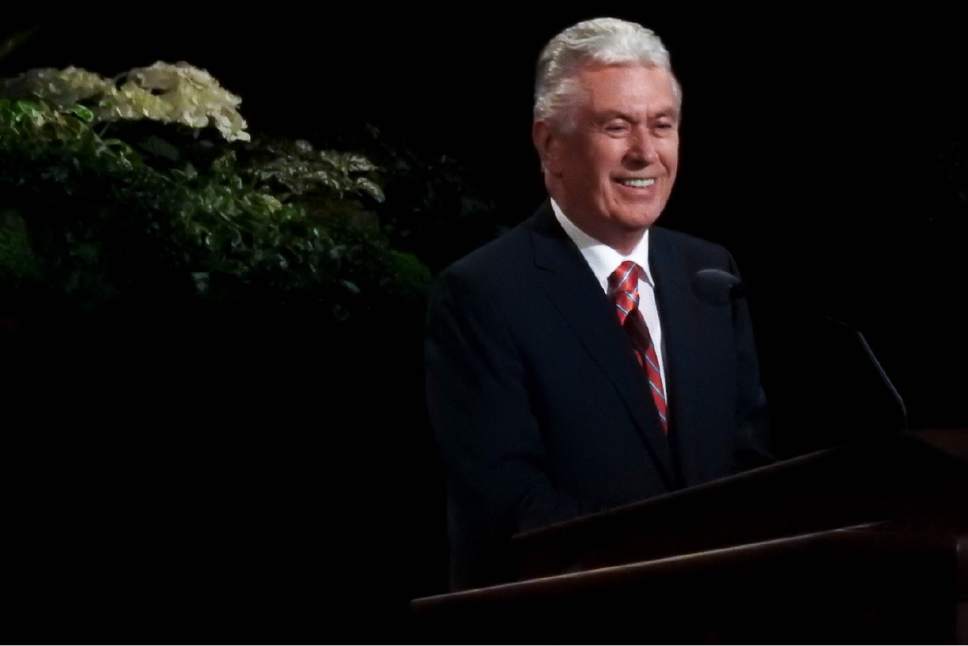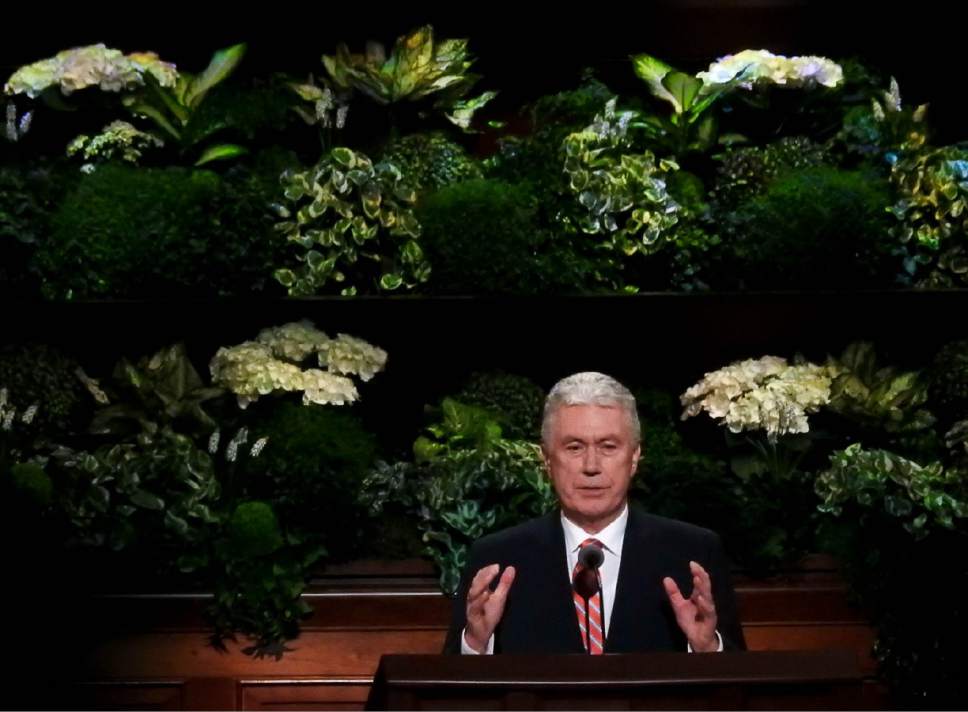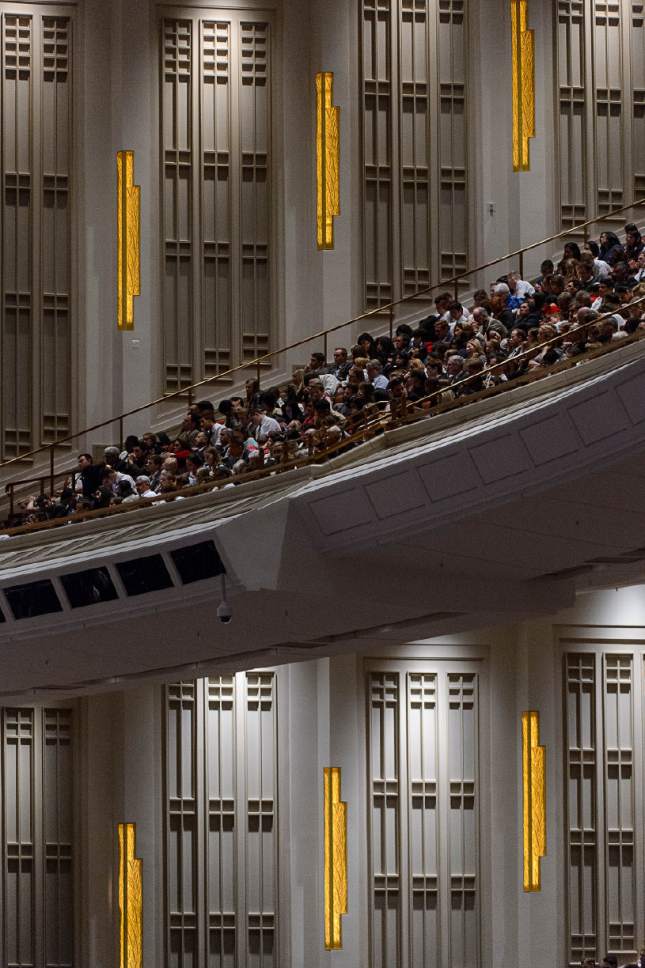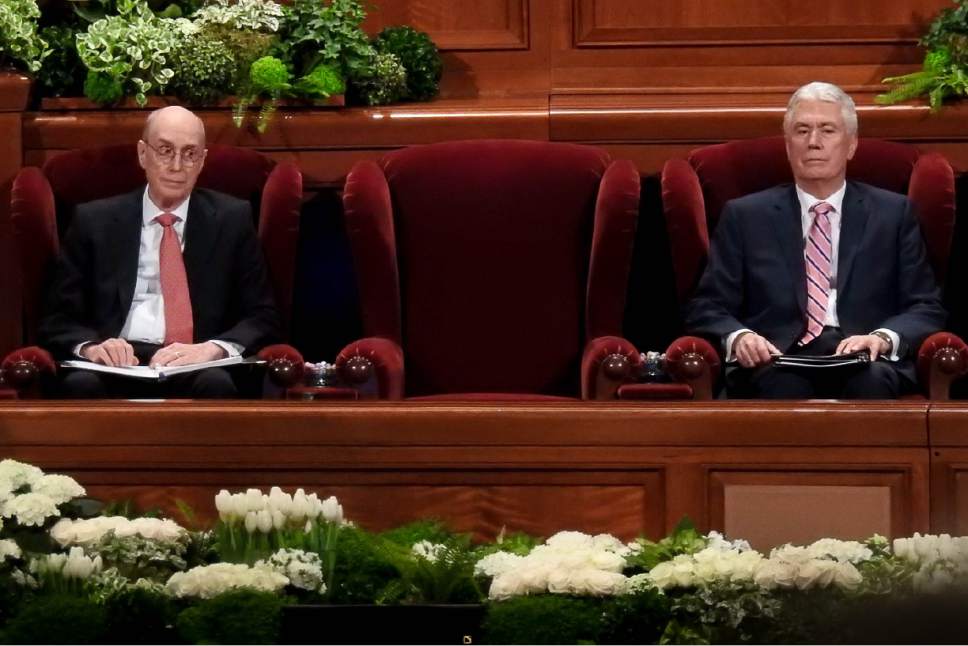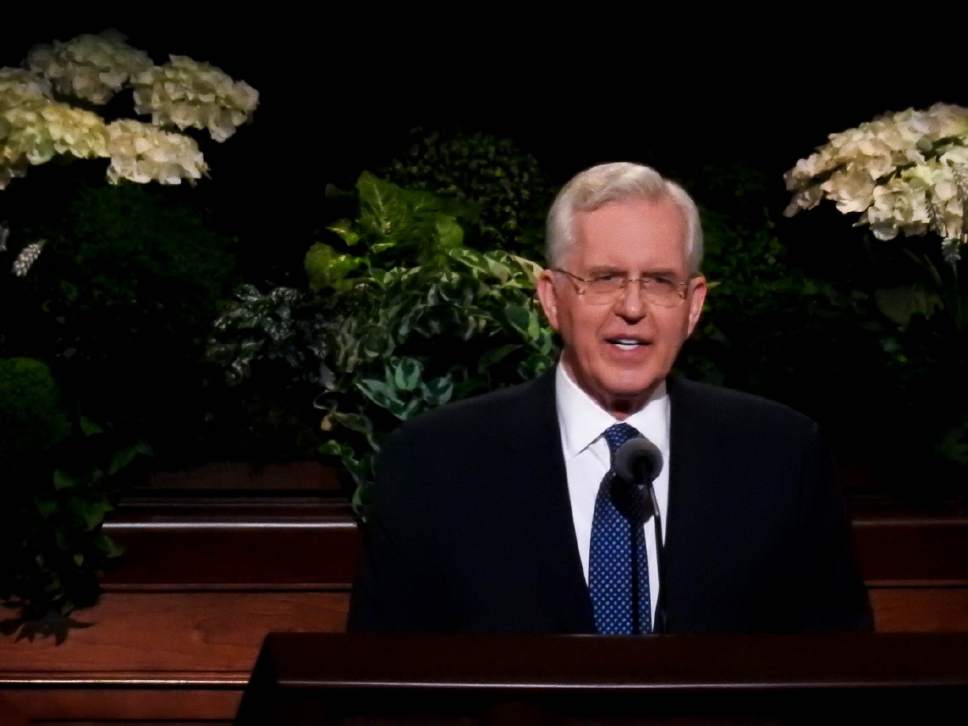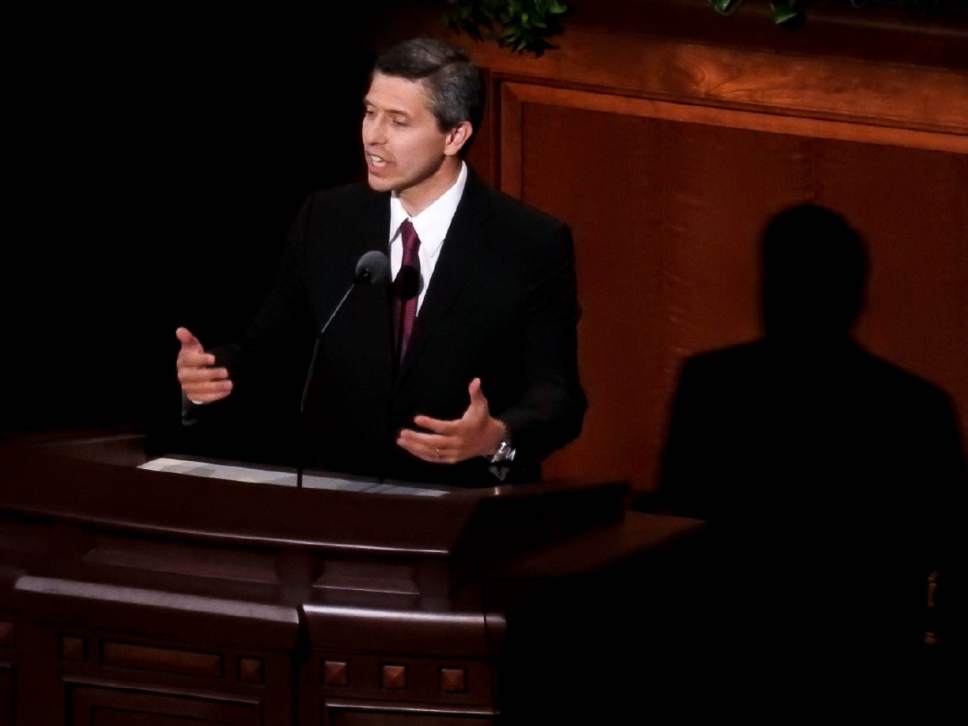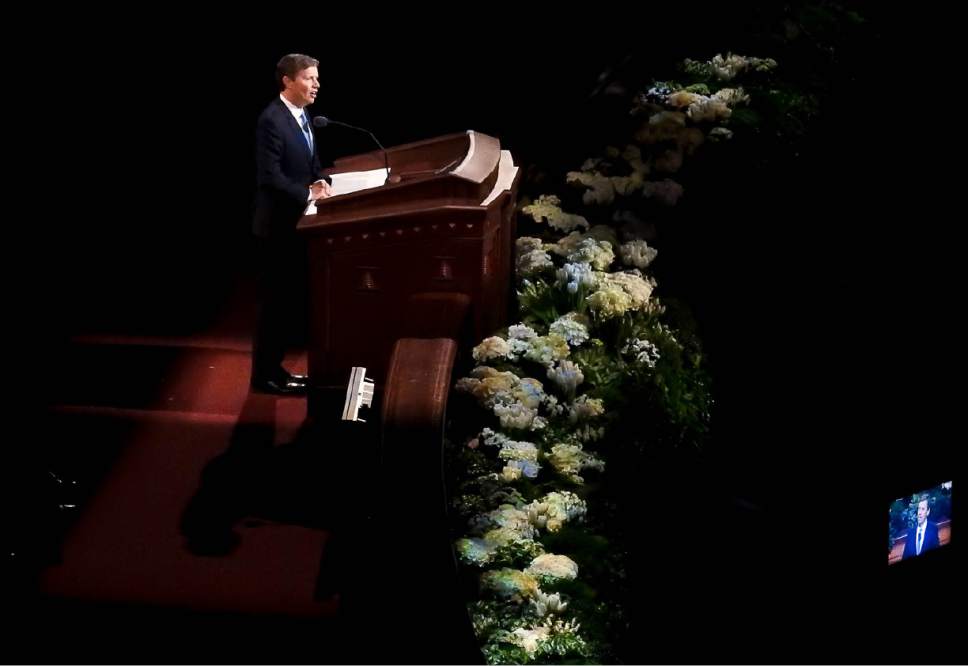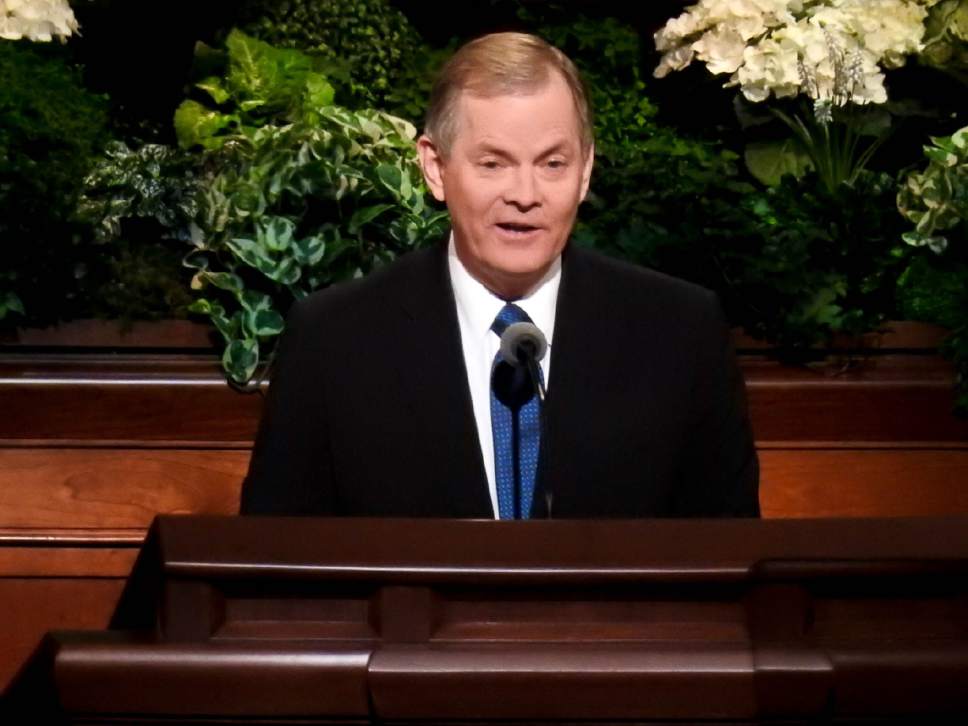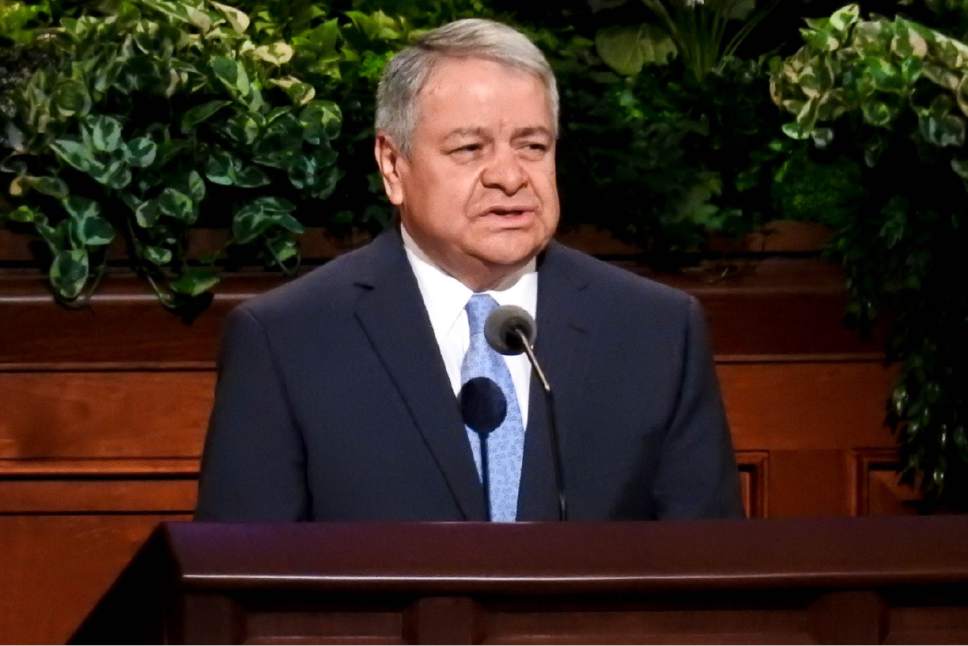This is an archived article that was published on sltrib.com in 2017, and information in the article may be outdated. It is provided only for personal research purposes and may not be reprinted.
Fear as a motivator may work when wielded by politicians, parents, promoters and some misguided Mormon leaders, but it lacks the transformative power of love, a top LDS authority said Sunday.
"One of the ways Satan wants us to manipulate others is by dwelling upon and even exaggerating the evil in the world ... [and] the corruption and wickedness in our day are unique and alarming," Dieter F. Uchtdorf told thousands of Mormons gathered in the giant Conference Center in downtown Salt Lake City. "But ... I wouldn't trade living in this time with any other time in the history of the world. We are blessed beyond measure to live in a day of unparalleled prosperity, enlightenment and advantage."
The charismatic German, second counselor in the faith's governing First Presidency, went on to say, "I don't believe God wants his children to be fearful or dwell on the evils in the world."
Uchtdorf was the concluding speaker during the Sunday morning session of the 187th Annual General Conference of The Church of Jesus Christ of Latter-day Saints.
President Thomas S. Monson opened the session by announcing plans for five new temples, including one in Saratoga Springs, which will be Utah's 18th Mormon temple. The other edifices will built in Brasilia, Brazil; Nairobi, Kenya; the greater Manila area in the Philippines; and Pocatello, Idaho.
The 89-year-old Monson, viewed by Mormons as a "prophet, seer and revelator," then spoke for several minutes about the "power" of the faith's signature scripture, the Book of Mormon.
"The importance of having a firm and sure testimony of the Book of Mormon cannot be overstated," he told the world's 15.8 million Latter-day Saints. "We live in a time of great trouble and wickedness. What will protect us from the sin and evil so prevalent in the world today? I maintain that a strong testimony of our savior, Jesus Christ, and his gospel will help see us through to safety."
Monson urged members who aren't reading the Book of Mormon daily to "please do so." By prayerfully studying and pondering the volume, he said, "we will be in a position to hear the voice of the Spirit, to resist temptation, to overcome doubt and fear, and to receive heaven's help in our lives."
The increasingly frail LDS leader, who delivered two short sermons this weekend, did not attend either the Saturday or Sunday afternoon conference sessions — nor the women's meeting the prior week.
A spokesman said Monson, church president for nine years and an LDS general authority for more than five decades, is "weary but well."
After Monson's speech Sunday morning, Joy D. Jones, general president of the church's Primary organization for children, discussed how to raise up a "sin-resistant generation."
Satan has launched a war against believers, Jones said. "The battle touches us all, and our children are on the front lines facing the opposing forces. Thus, the need intensifies for us to strengthen our spiritual strategies."
How to protect the young people?
Developing "habits of prayer, scripture study, family home evening and Sabbath worship," Jones said, will lead to "wholeness, internal consistency and strong moral values — in other words, spiritual integrity."
Jones was the only woman to give a speech from the conference pulpit this weekend. In recent years, more women than that usually deliver sermons the final two days of conference — in addition to the addresses they give at the women's session. A church spokesman declined to comment on the reason.
In his capstone morning sermon, Uchtdorf noted that fear can prompt people to make right choices — to eat better, wear seat belts and repent from sin. But such influences can be "temporary and shallow."
"People who are fearful may say and do the right things, but they do not feel the right things," he said. "They often feel helpless and resentful, even angry. Over time these feelings lead to mistrust, defiance and rebellion."
Uchtdorf lamented that fearmongering sometimes arises among rank-and-file Mormons and their leaders.
"It grieves me," he said, "to hear of church members who exercise unrighteous dominion — whether in their homes, church callings, at work, or in their daily interactions with others."
Uchtdorf echoed a theme introduced the day before by fellow Mormon apostles — namely, the need for more civility in public and private.
"Often people may condemn bullying in others, yet they cannot see it in themselves," he said. "They demand compliance with their own arbitrary rules, but when others don't follow these random rules, they chasten them verbally, emotionally and sometimes even physically."
On Saturday, apostle Dale G. Renlund also criticized bullying, along with bigotry and an "unwillingness to grant equal freedom of expression." "Everyone, including people of religion," he said, "has the right to express his or her opinions in the public square."
These words come in the wake of a string of rowdy town hall meetings in Utah and elsewhere, covering policy issues ranging from homelessness and where shelters should be built to the partisan rancor about the pros and cons of the new Trump administration.
"There may be moments when we are tempted to justify our actions by believing that the end justifies the means," Uchtdorf said. "We might even think that to be controlling, manipulative and harsh will be for the good of others. Not so, for the Lord has made it clear, 'the fruit of the Spirit is love, joy, peace, long-suffering, gentleness, goodness, faith, meekness [and] temperance.' "
In the final session, apostle D. Todd Christofferson said parents have a responsibility to "warn their closest neighbors — meaning their own children."
"This means teaching and testifying of gospel truths ... faith, repentance, baptism and the gift of the Holy Ghost."
A crucial element of any warning, he added, "is not only to paint the demoralizing consequences of sin, but also the joy of walking in obedience to the commandments."
Jesus did not hesitate to warn his listeners, Christofferson said, "because he knows that not just any path leads to heaven."
Addressing the faith's younger generation, the apostle counseled, "Do not abandon those who would welcome truth to flounder and fail in ignorance. Do not succumb to false notions of tolerance or to fear — fear of inconvenience, disapproval, or even suffering."
Fellow apostle Quentin L. Cook concluded the conference by emphasizing the importance of building a foundation of faith — "one layer, one experience, one challenge, one setback and one success at a time."
"Just as repetition and consistent effort are required to gain physical or mental capacity, the same is true in spiritual matters," Cook said. "I believe weekly participation in sacred sacrament meetings has spiritual implications we do not fully understand. Pondering the scriptures regularly — rather than reading them occasionally — can substitute a superficial understanding for a sublime life-changing enhancement of our faith."
Editor David Noyce contributed to this story.



